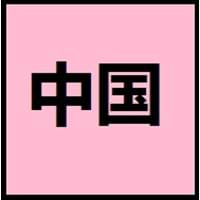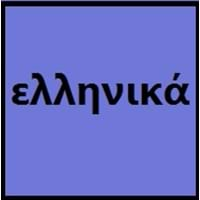Countries
China, Hong Kong, Macau, Singapore, Taiwan
Cyprus, European Union, Greece
National Language
China, Taiwan
Albania, Cyprus, Egypt, France, Greece, Italy, Romania, Turkey, Ukraine
Second Language
Republic of Brazil
Roman Empire
Speaking Continents
Asia
Asia, Europe
Minority Language
Indonesia, Malaysia
Albania, Armenia, Australia, Hungary, Italy, Romania, Turkey, Ukraine
Regulated By
Chinese Language Standardization Council, National Commission on Language and Script Work, Promote Mandarin Council
Center for the Greek language (Κέντρον Ελληνικής Γλώσσας)
Interesting Facts
- Chinese language is tonal, since meaning of a word changes according to its tone.
- In Chinese language, there is no grammatical distinction between singular or plural, no declination of verbs according to tense, mood and aspect.
- Greek is the longest documented language of all the Indo-European Langauges.
- The official language of education in the Roman Empire was Greek.
Similar To
Not Available
Armenian
Derived From
Not Available
Latin
Alphabets in
Chinese.jpg#200
Greek-Alphabets.jpg#200
Scripts
Chinese Characters and derivatives
Arabic, Latin
Writing Direction
Left-To-Right, Horizontal, Top-To-Bottom
Left-To-Right, Horizontal
Hello
您好 (Nín hǎo)
γεια σας (geia sas)
Thank You
谢谢 (Xièxiè)
ευχαριστώ (ef̱charistó̱)
How Are You?
你好吗? (Nǐ hǎo ma?)
πώς είσαι (pó̱s eísai)
Good Night
晚安 (Wǎn'ān)
Καληνυχτα (Kali̱nychta)
Good Evening
晚上好 (Wǎnshàng hǎo)
καλησπέρα (kali̱spéra)
Good Afternoon
下午好 (Xiàwǔ hǎo)
Καλὸ ἀπόγευμα (Kaló apóyevma)
Good Morning
早安 (Zǎo ān)
καλημέρα (kali̱méra)
Please
请 (Qǐng)
παρακαλώ (parakaló̱)
Sorry
遗憾 (Yíhàn)
συγνώμη (sygnó̱mi̱)
Bye
再见 (Zàijiàn)
αντίο (antío)
I Love You
我爱你 (Wǒ ài nǐ)
Σε αγαπώ (Se agapó̱)
Excuse Me
劳驾 (Láojià)
Με συγχωρείτε! (Me synhoríte)
Dialect 1
Mandarin
Cappadocian Greek
Where They Speak
China, Malaysia, Singapore, Taiwan
Greece
Where They Speak
China, United States of America
Italy
Where They Speak
China, Malaysia, Singapore, Vietnam
Ukraine
How Many People Speak
Not Available
Second Language Speakers
Not Available
Native Name
中文 (zhōngwén)
ελληνικά
Alternative Names
Not Available
Ellinika, Graecae, Grec, Greco, Neo-Hellenic, Romaic
French Name
chinois
grec moderne (après 1453)
German Name
Chinesisch
Neugriechisch
Pronunciation
Not Available
[eliniˈka]
Ethnicity
Han
Greeks or Hellenes
Language Family
Sino-Tibetan Family
Indo-European Family
Subgroup
Not Available
Hellenic
Branch
Not Available
Not Available
Early Forms
No early forms
Proto-Greek, Mycenaean Greek, Ancient Greek, Koine Greek and Medieval Greek
Standard Forms
Standard Chinese
Modern Greek
Signed Forms
Wenfa Shouyu 文法手語 ("Grammatical Sign Language", Signed Mandarin (Taiwan))
Greek Sign Language
Scope
Individual
Individual
ISO 639 6
Not Available
ells
Glottocode
sini1245
gree1276
Linguasphere
79-AAA
56-AAA-a
Language Type
Living
Living
Language Linguistic Typology
Subject-Verb-Object
Subject-Verb-Object
Language Morphological Typology
Analytic, Isolating
Fusional, Synthetic
All Chinese and Greek Dialects
Most languages have dialects where each dialect differ from other dialect with respect to grammar and vocabulary. Here you will get to know all Chinese and Greek dialects. Various dialects of Chinese and Greek language differ in their pronunciations and words. Dialects of Chinese are spoken in different Chinese Speaking Countries whereas Greek Dialects are spoken in different Greek speaking countries. Also the number of people speaking Chinese vs Greek Dialects varies from few thousands to many millions. Some of the Chinese dialects include: Mandarin, Wu. Greek dialects include: Cappadocian Greek , Griko. Also learn about dialects in South American Languages and North American Languages.
Chinese and Greek Speaking population
Chinese and Greek speaking population is one of the factors based on which Chinese and Greek languages can be compared. The total count of Chinese and Greek Speaking population in percentage is also given. The percentage of people speaking Chinese language is 16.00 % whereas the percentage of people speaking Greek language is 0.18 %. When we compare the speaking population of any two languages we get to know which of two languages is more popular. Find more details about how many people speak Chinese and Greek on Chinese vs Greek where you will get native speakers, speaking population in percentage and native names.
Chinese and Greek Language Codes
Chinese and Greek language codes are used in those applications where using language names are tedious. Chinese and Greek Language Codes include all the international language codes, glottocodes and linguasphere.





